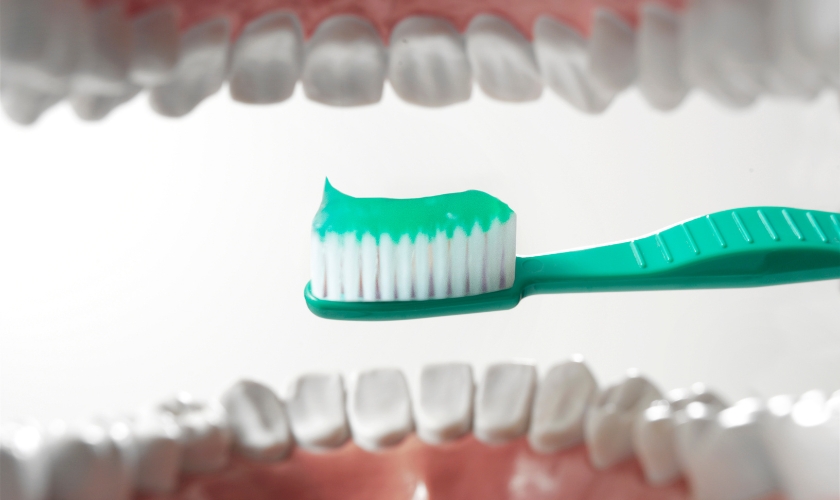Call: (630) 620-0929
How does diabetes affect your teeth?


Living with diabetes means managing your blood sugar levels constantly. But did you know your mouth can also be affected by this condition? That’s right, diabetes can wreak havoc on your teeth and gums. Let’s delve into how diabetes can impact your oral health and what you can do to fight back.
Sugar Rush in the Mouth: A Feast for Bacteria
People with diabetes often have high blood sugar levels. This excess sugar isn’t just present in the bloodstream; it can also seep into your saliva. Think of saliva as your mouth’s natural defense system, washing away food particles and bacteria. However, the presence of sugar creates a feeding frenzy for harmful bacteria in your mouth. These bacteria produce acid as they consume the sugar, leading to a decline in your saliva’s pH level. This acidic environment weakens your tooth enamel, making you more susceptible to cavities.
Gingivitis and Periodontitis: Gum Disease on Steroids
High blood sugar levels can also weaken your body’s immune response. This makes it harder to fight off infections, including gum disease. Gingivitis, the initial stage of gum disease, causes inflammation, redness, and bleeding of the gums. If left untreated, gingivitis can progress to periodontitis, a severe gum infection that damages the tissues and bones supporting your teeth. In worst-case scenarios, periodontitis can lead to tooth loss.
Furthermore, diabetes can slow down healing after dental procedures. This delayed healing process can worsen gum disease and make it more challenging to treat.
Dry Mouth: A Double-Edged Sword
Another potential oral side effect of diabetes is dry mouth, medically known as xerostomia. Saliva plays a vital role in keeping your mouth moist, washing away food particles, and neutralizing acids produced by bacteria. When your mouth is dry, these functions become compromised. Dry mouth can contribute to tooth decay as there’s less saliva to wash away sugar and neutralize acidity. It can also make your mouth more susceptible to fungal infections like thrush.
Brushing Up on Defense Strategies: Fight Back Against Diabetes’ Oral Impact
The good news is that you can significantly reduce the risk of diabetes-related oral problems by practicing good oral hygiene and working closely with your dentist. Here are some key strategies:
- Brushing and Flossing: Brushing your teeth twice a day with fluoride toothpaste and flossing daily are essential for removing plaque and bacteria. Consider using a soft-bristled toothbrush to prevent gum irritation.
- Regular Dental Checkups: Schedule regular dental checkups and cleanings, ideally every six months. During these visits, your dentist can identify any potential problems early on and provide appropriate treatment.
- Blood Sugar Management: Maintaining good blood sugar control is crucial for overall health, including your oral health. Work with your doctor to develop a personalized diabetes management plan that keeps your blood sugar levels within the target range.
- Hydration is Key: Drink plenty of water throughout the day to keep your mouth moist. If you experience chronic dry mouth, consult your dentist for additional measures like artificial saliva products.
- Quit Smoking: Smoking weakens the immune system and worsens gum disease. If you smoke, quitting is one of the best things you can do for your overall health, including your oral health.
Beyond the Basics: A Holistic Approach to Oral Health with Diabetes
While a good oral hygiene routine is vital, a holistic approach is essential for managing diabetes’ impact on your mouth. Here are some additional tips:
- Dietary Choices: Be mindful of your diet. Limit sugary foods and drinks, which can exacerbate blood sugar fluctuations and fuel the growth of harmful bacteria in your mouth. Choose healthy options rich in vitamins and minerals that support overall health, including your teeth and gums. Consider incorporating vegetables, fruits, and whole grains into your diet, as they provide essential nutrients for maintaining healthy teeth and gums.
- Monitor Your Mouth: Be aware of any changes in your mouth, such as bleeding gums, persistent bad breath, or loose teeth. These can be signs of gum disease and warrant a visit to your dentist. Regular self-checks can help you identify potential problems early on when they are easier to treat.
- Manage Stress: Chronic stress can negatively impact your blood sugar control and weaken your immune system, making you more susceptible to oral infections. Find healthy ways to manage stress, such as exercise, relaxation techniques, or spending time in nature.
Remember, maintaining good oral hygiene is a crucial part of diabetes management. By following these tips and working closely with your dentist in Lombard, you can keep your smile healthy and bright. Regular dental visits allow for early detection and intervention of any oral health issues that may arise due to diabetes. This proactive approach can help prevent complications and ensure your oral health remains a positive aspect of your overall well-being.





